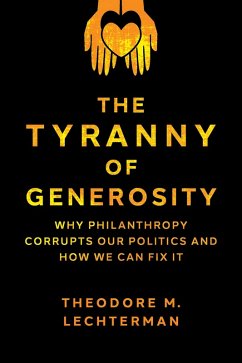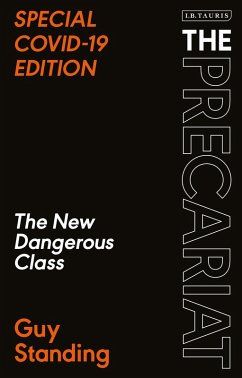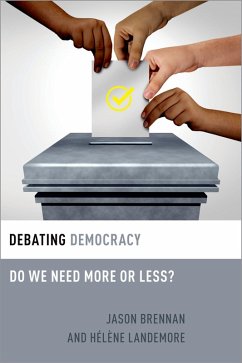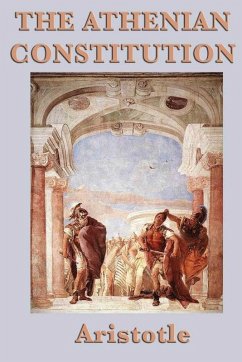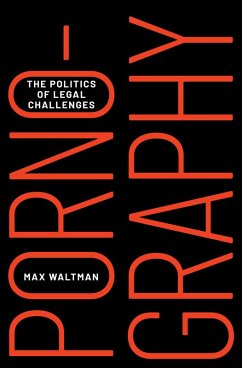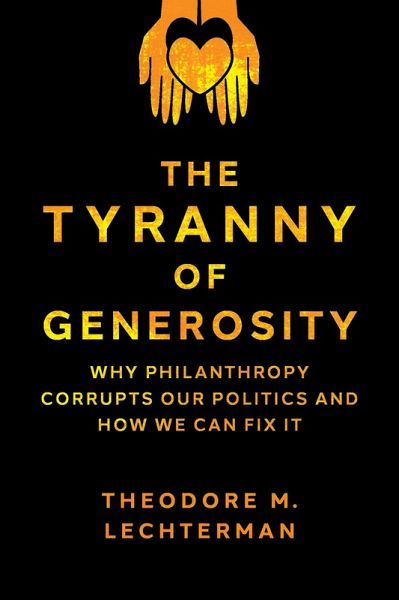
The Tyranny of Generosity (eBook, ePUB)
Why Philanthropy Corrupts Our Politics and How We Can Fix It
Versandkostenfrei!
Sofort per Download lieferbar
11,95 €
inkl. MwSt.
Weitere Ausgaben:

PAYBACK Punkte
6 °P sammeln!
The practice of philanthropy, which releases private property for public purposes, represents in many ways the best angels of our nature. But this practice's noteworthy virtues often obscure the fact that philanthropy also represents the exercise of private power. In The Tyranny of Generosity, Theodore Lechterman shows how this private power can threaten the foundations of a democratic society. The deployment of private wealth for public ends may rival the authority of communities to determine their own affairs. And, in societies characterized by wide disparities in wealth, philanthropy often ...
The practice of philanthropy, which releases private property for public purposes, represents in many ways the best angels of our nature. But this practice's noteworthy virtues often obscure the fact that philanthropy also represents the exercise of private power. In The Tyranny of Generosity, Theodore Lechterman shows how this private power can threaten the foundations of a democratic society. The deployment of private wealth for public ends may rival the authority of communities to determine their own affairs. And, in societies characterized by wide disparities in wealth, philanthropy often combines with background inequalities to make public decisions overwhelmingly sensitive to the preferences of the rich. Allowing private wealth to dictate social outcomes collides with core commitments of a democratic society, a society in which people are supposed to determine their common affairs together, on equal terms. But why exactly is democracy valuable? How should these values be weighed against the liberty of donors and the many social benefits that philanthropy promises? Lechterman explores these questions by examining various topics in the practice of philanthropy: the respective roles of philanthropy and government, public subsidies for private giving, the use of donations for political speech, instruments of perpetual giving, the rise in giving by commercial corporations, and "effective altruism" as a guide for individual giving. These studies build to a surprising conclusion: realizing the democratic ideal may be impossible without philanthropy--but making philanthropy safe for democracy also requires fundamental changes to policy and practice.
Dieser Download kann aus rechtlichen Gründen nur mit Rechnungsadresse in A, B, BG, CY, CZ, D, DK, EW, E, FIN, F, GR, HR, H, IRL, I, LT, L, LR, M, NL, PL, P, R, S, SLO, SK ausgeliefert werden.




